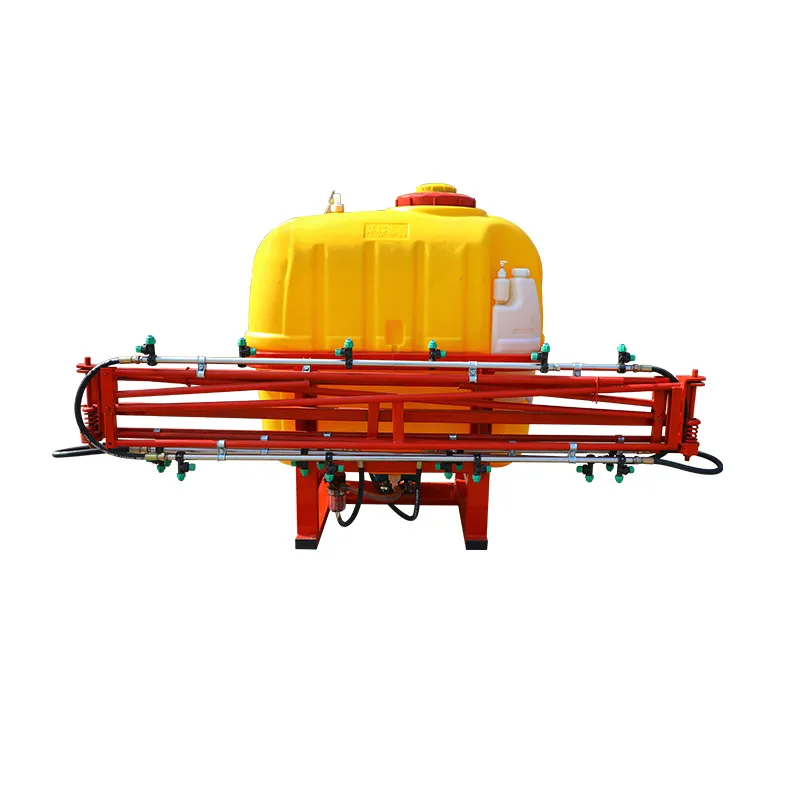Understanding Agricultural Sprayers: Types, Benefits, and Applications
2024-08-01
Agricultural sprayers are essential tools for modern farming, allowing farmers to efficiently apply fertilizers, pesticides, herbicides, and other treatments to crops. These devices come in various types, each suited to specific needs and applications. In this blog, we'll explore the different types of agricultural sprayers, their benefits, and their applications in farming.
Types of Agricultural Sprayers
1. Handheld Sprayers
- Description: Handheld sprayers are small, manual devices operated by a hand pump. They are ideal for spot treatments and small-scale applications.
- Applications: These sprayers are commonly used in gardens, greenhouses, and for treating individual plants or small areas.
2. Backpack Sprayers
- Description: Backpack sprayers are portable units worn on the back, with a pump operated by hand or battery. They offer greater capacity and coverage than handheld sprayers.
- Applications: Backpack sprayers are suitable for medium-sized areas, such as orchards, vineyards, and small farms.
3. Tractor-Mounted Sprayers
- Description: These sprayers are attached to tractors and come in various configurations, including boom sprayers and mist sprayers. They are powered by the tractor's engine or a separate power source.
- Applications: Tractor-mounted sprayers are used for large-scale farming operations, including row crops, orchards, and vineyards.
4. Self-Propelled Sprayers
- Description: Self-propelled sprayers are standalone machines designed for high-efficiency spraying over large areas. They are equipped with their own engine and offer advanced features for precision agriculture.
- Applications: These sprayers are used in extensive farming operations, such as large crop fields and commercial farms.
5. Aerial Sprayers
- Description: Aerial sprayers are mounted on aircraft, such as planes or drones, and are used for spraying large areas from the air.
- Applications: Aerial spraying is ideal for covering vast fields, forests, and inaccessible areas quickly and efficiently.

Benefits of Agricultural Sprayers
1. Increased Efficiency
- Sprayers enable farmers to apply treatments quickly and uniformly, saving time and labor compared to manual application methods.
2. Improved Coverage
- Modern sprayers are designed to provide consistent coverage, ensuring that all plants receive the necessary treatments for optimal growth and health.
3. Precision Application
- Advanced sprayers offer precise control over application rates and coverage areas, reducing waste and ensuring that chemicals are used effectively.
4. Cost Savings
- By improving efficiency and precision, sprayers help reduce the overall cost of inputs such as fertilizers and pesticides, contributing to more cost-effective farming practices.
5. Enhanced Crop Health
- Proper application of treatments through sprayers helps protect crops from pests, diseases, and nutrient deficiencies, leading to healthier plants and higher yields.
Applications of Agricultural Sprayers
1. Pest Control
- Sprayers are widely used to apply pesticides and insecticides, protecting crops from harmful pests and minimizing crop loss.
2. Weed Management
- Herbicides can be applied using sprayers to control weeds and prevent them from competing with crops for nutrients and water.
3. Fertilization
- Liquid fertilizers can be efficiently applied through sprayers, ensuring that crops receive essential nutrients for growth and development.
4. Foliar Feeding
- Sprayers are used for foliar feeding, where nutrients are applied directly to the leaves, allowing for quick absorption and immediate benefits to the plant.
5. Disease Control
- Fungicides and other treatments can be applied using sprayers to prevent and manage crop diseases, ensuring healthy growth and higher yields.
Conclusion
Agricultural sprayers are indispensable tools for modern farming, offering a range of benefits that enhance efficiency, precision, and crop health. By understanding the different types of sprayers and their applications, farmers can choose the right equipment to meet their specific needs and optimize their farming practices. Whether for pest control, weed management, or fertilization, agricultural sprayers play a vital role in ensuring the success and sustainability of farming operations.


